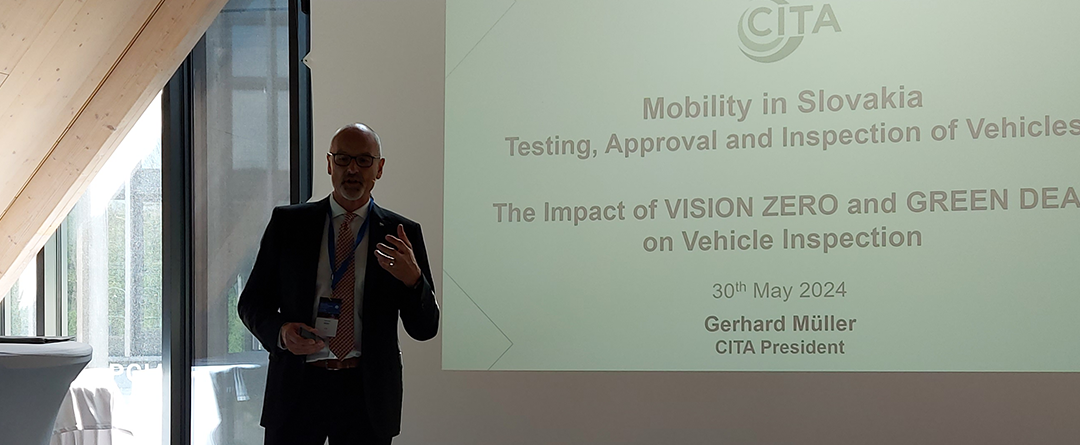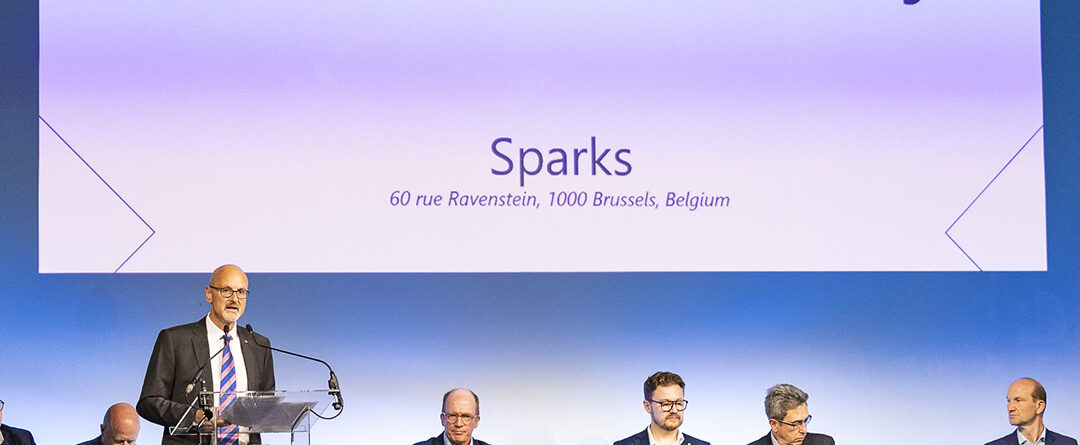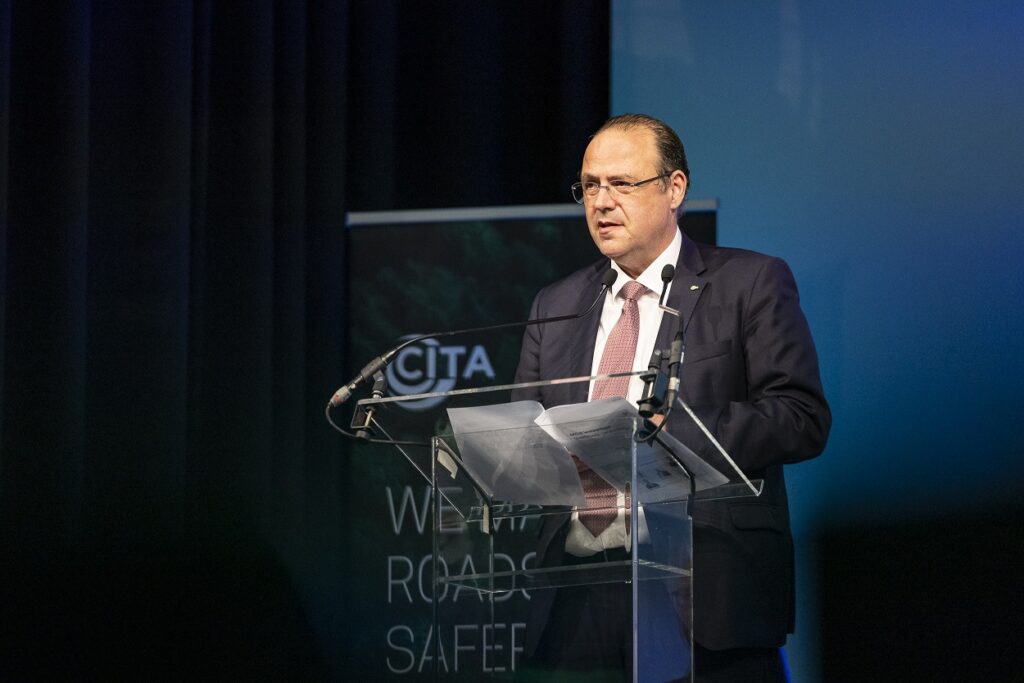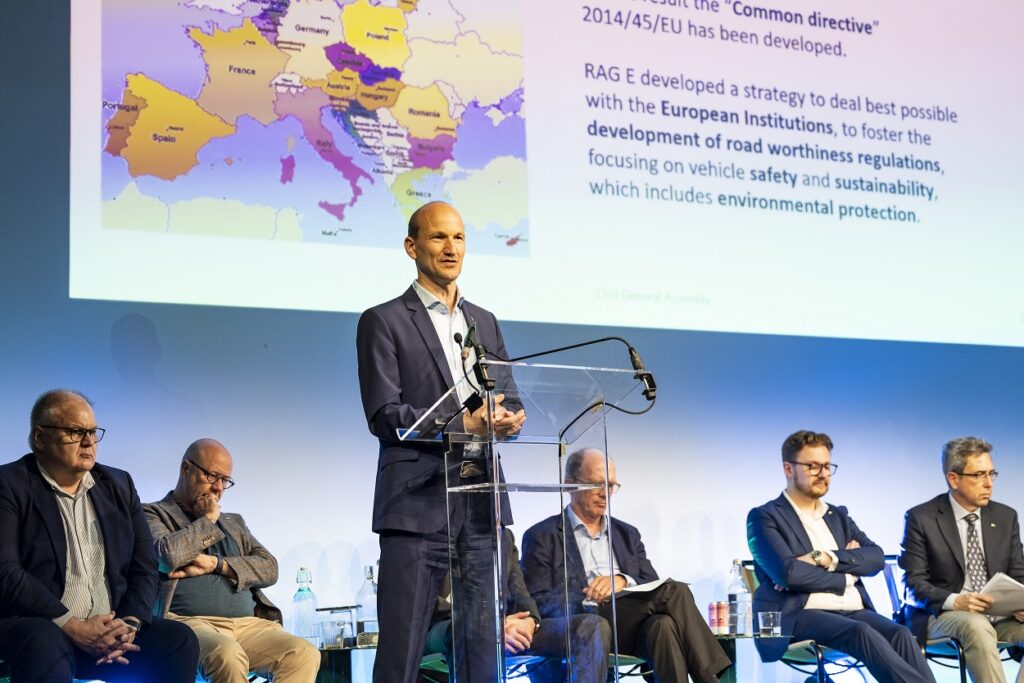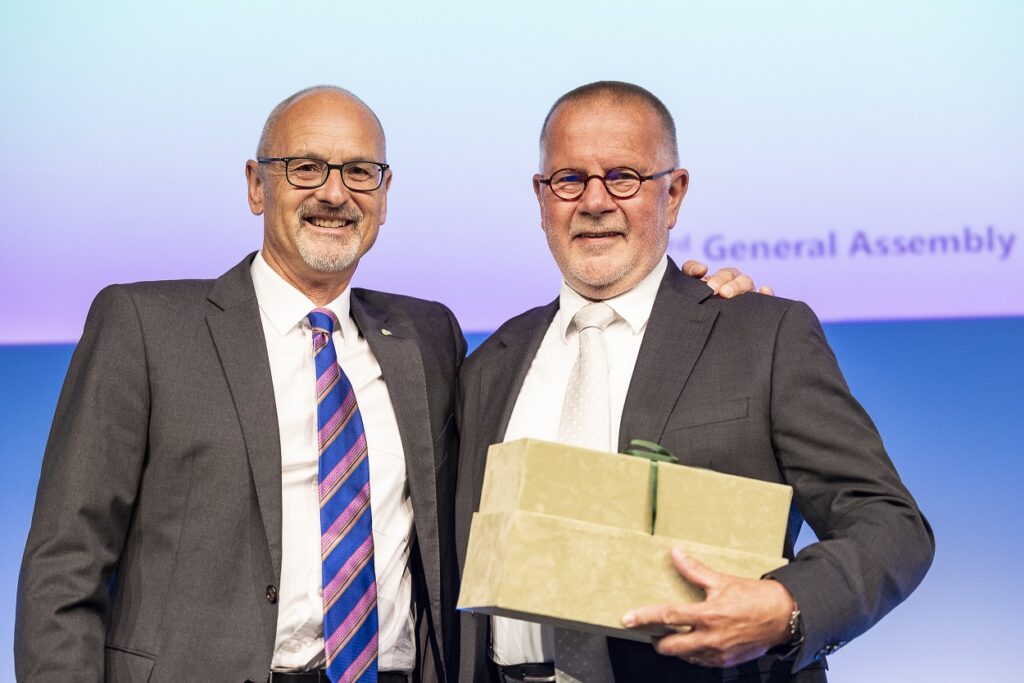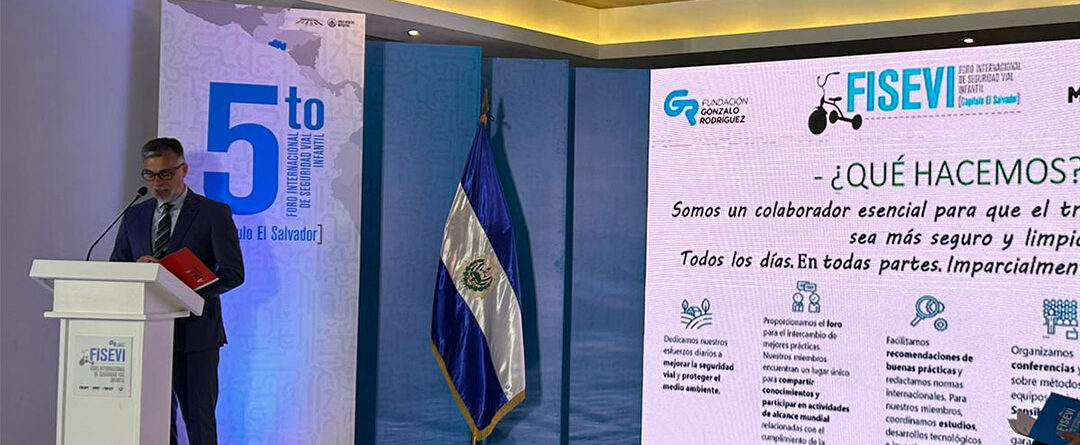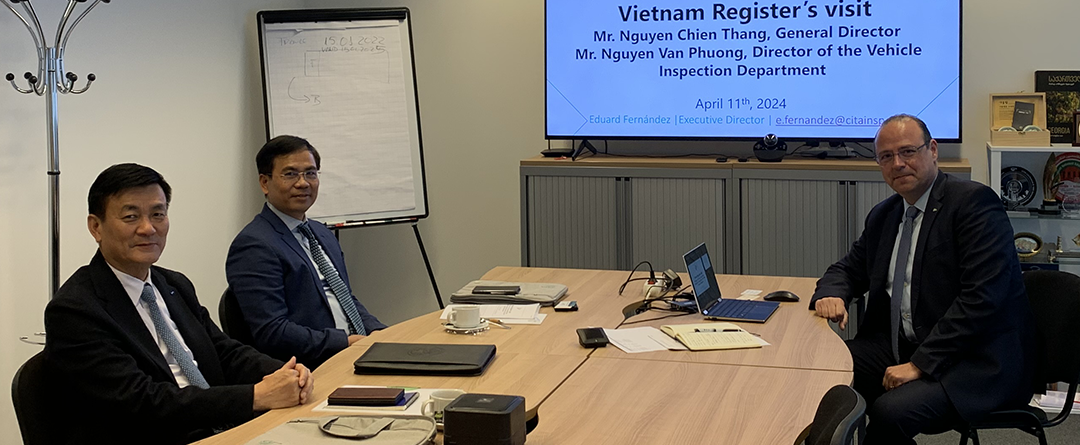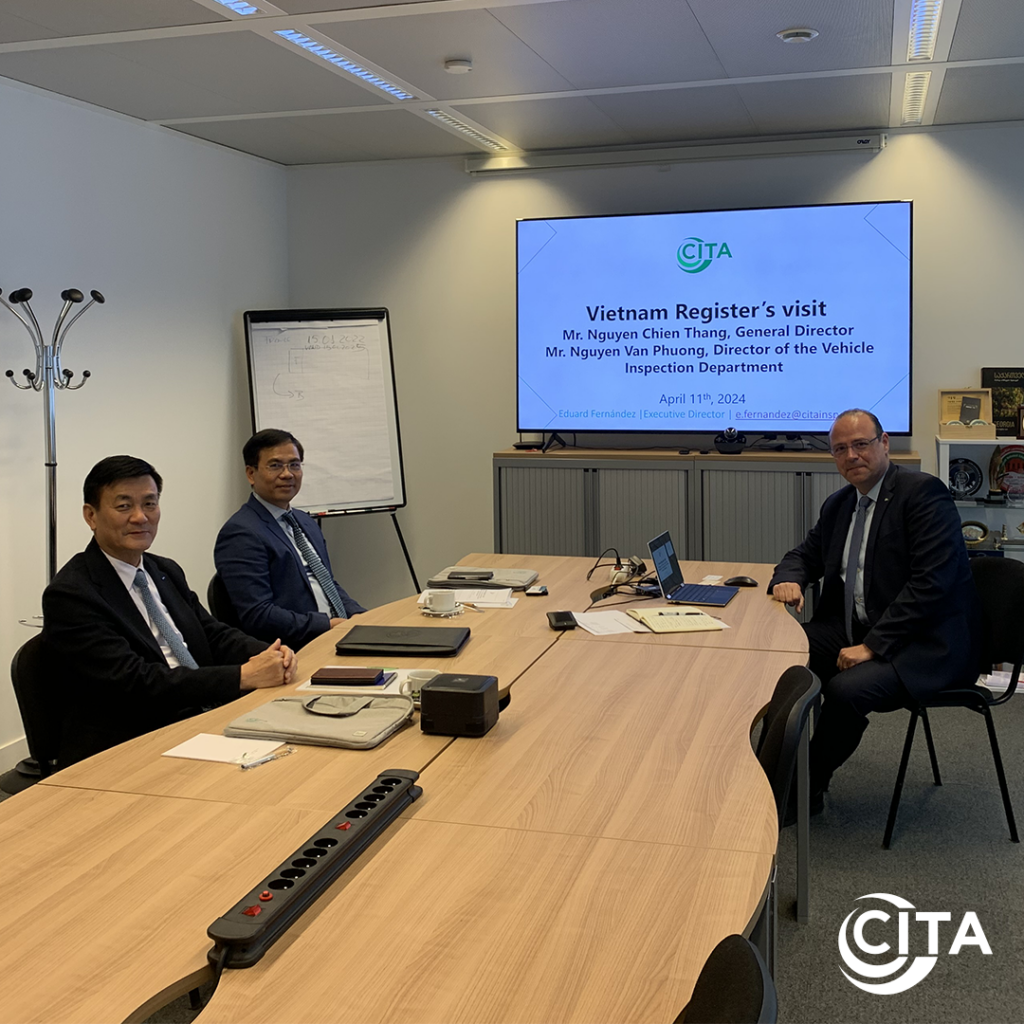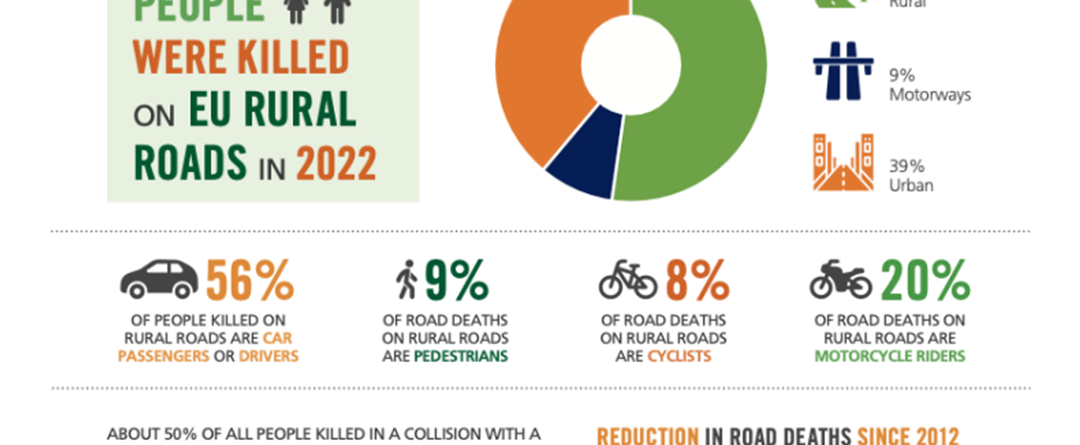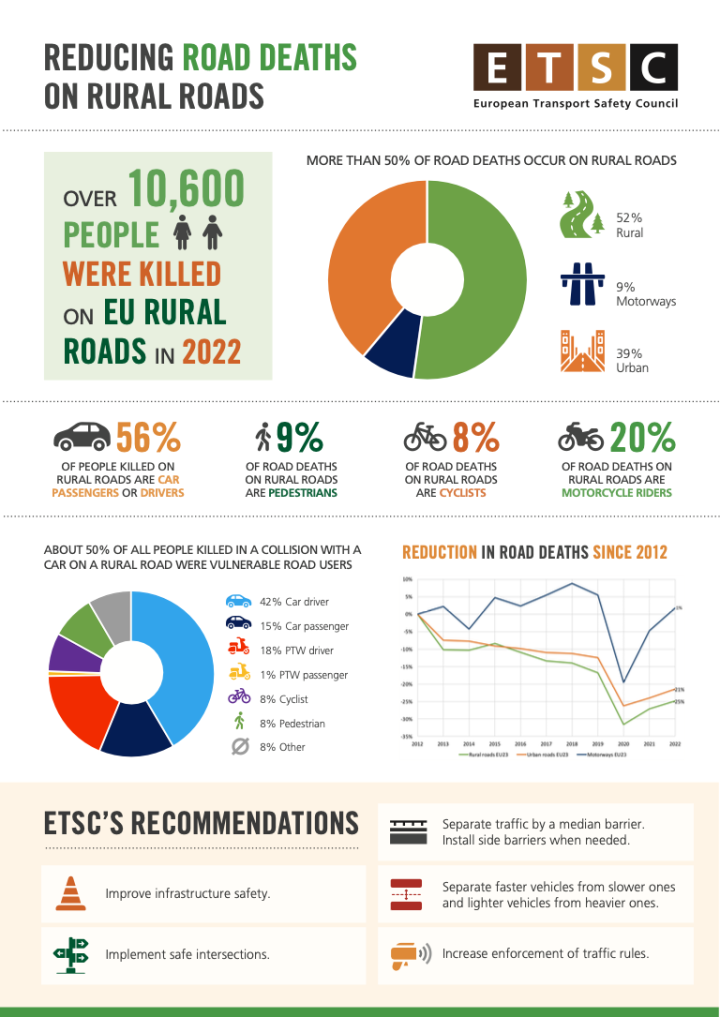Mobility in Slovakia Conference
On May 30, 2024, the "Mobility in Slovakia" conference brought together key stakeholders in the field of vehicle testing, approval, and inspection. This significant event, organized by TÜV SÜD in collaboration with the Ministry of Transport of the Slovak Republic, featured active participation from CITA, as well as representatives from Homola, TESTEK, S-EKA, and IRIS-IDENT.
The conference aimed to address the challenges and advancements in vehicle inspection and approval processes, attracting the attention of professionals and organizations deeply involved in this critical field.
CITA President Mr. Gerhard Müller delivered a compelling keynote, emphasizing the importance of vehicle inspection in achieving the ambitious goals of Vision Zero and the European Green Deal. Mr. Müller highlighted how these EU strategies will influence future trends in the automotive industry, stressing that rigorous vehicle inspections are essential to ensuring safety and environmental sustainability.
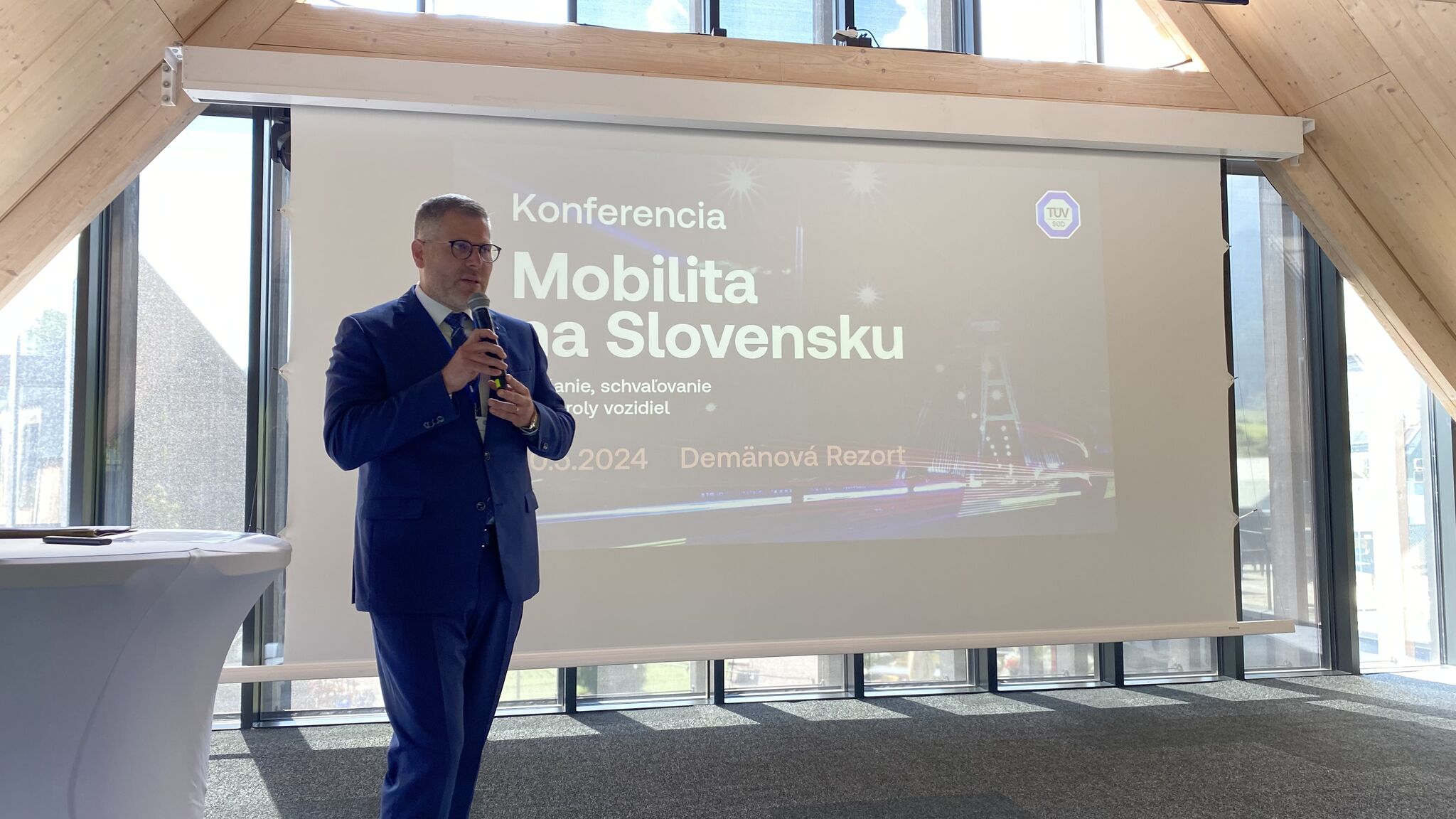
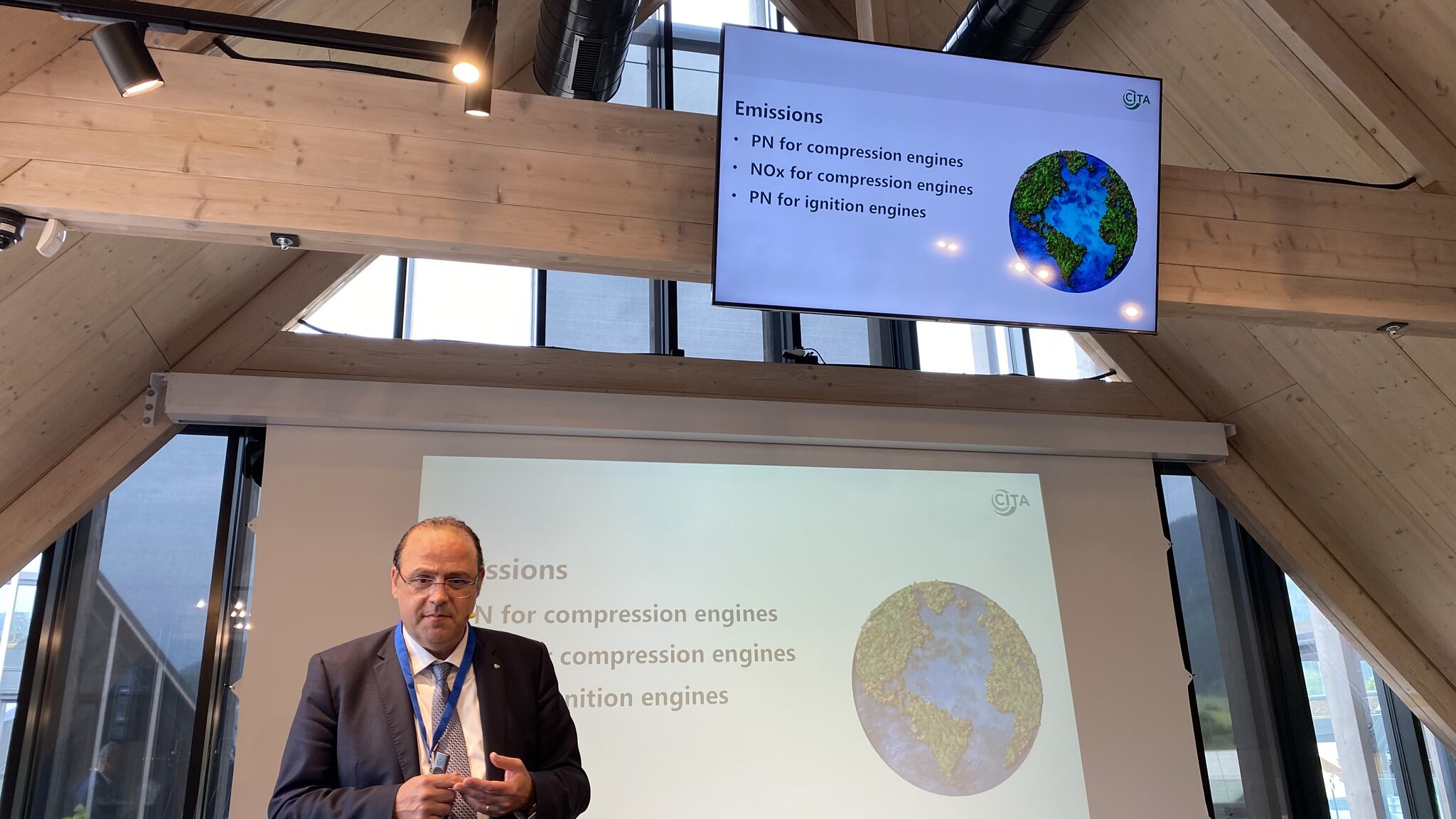
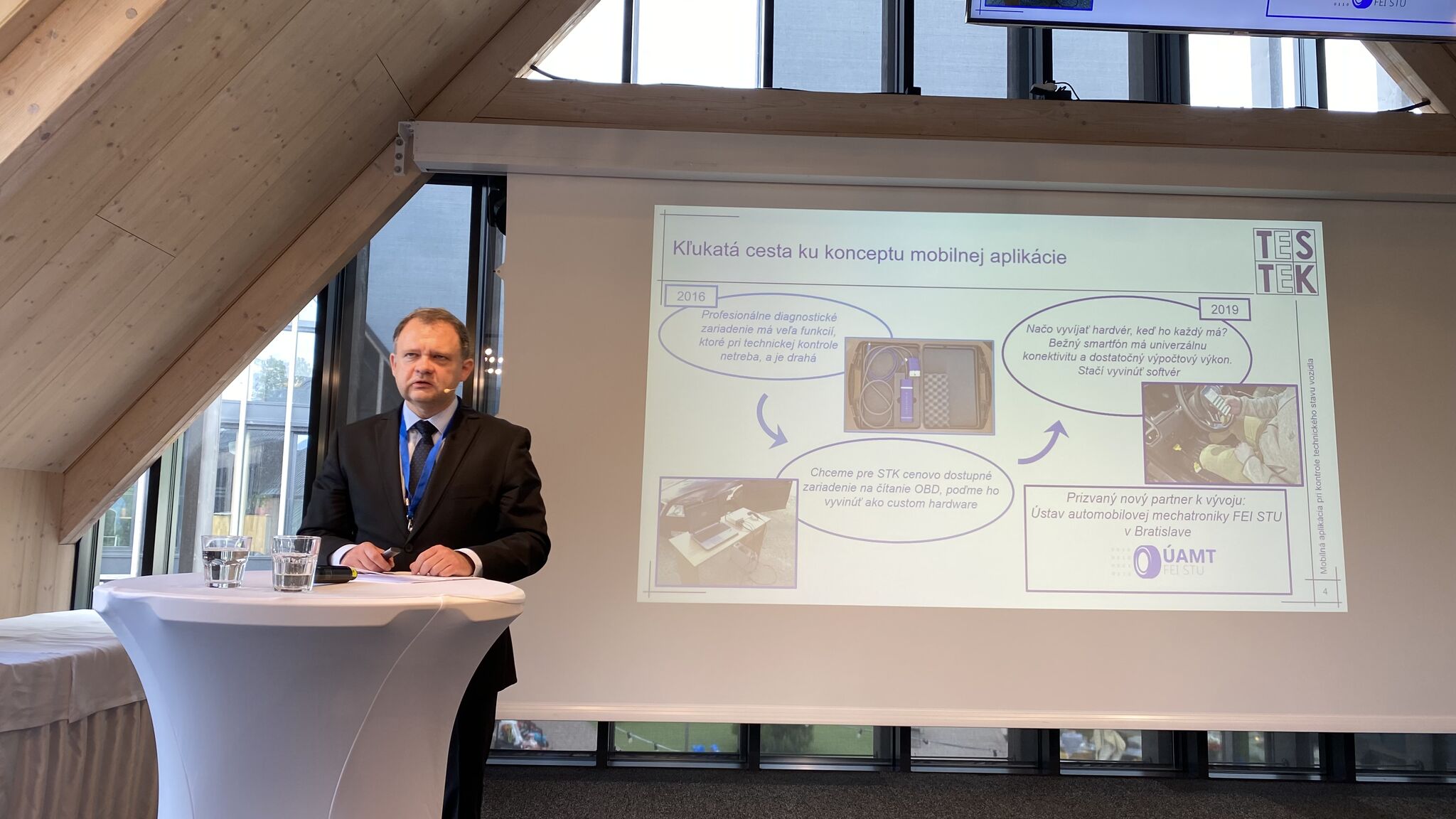
CITA's active participation extended beyond the keynote, with a detailed presentation by Mr. Eduard Fernández - CITA Executive Director, who discussed the evolving landscape of vehicle inspections and the regulatory changes on the horizon.
The conference agenda included a series of insightful lectures covering a wide range of pertinent topics. Experts discussed cybersecurity in the automotive sector, a critical area as vehicles become increasingly connected and digitalized. The upcoming changes to the Directive on technical inspection of vehicles and the EURO 7 emission standard were also thoroughly examined, providing attendees with valuable insights into future regulatory requirements.
The "Mobility in Slovakia" conference underscored the critical role of PTI in achieving safer roads and a cleaner environment. As the automotive industry continues to evolve, such events are essential for fostering collaboration and innovation to meet the challenges of the future.

